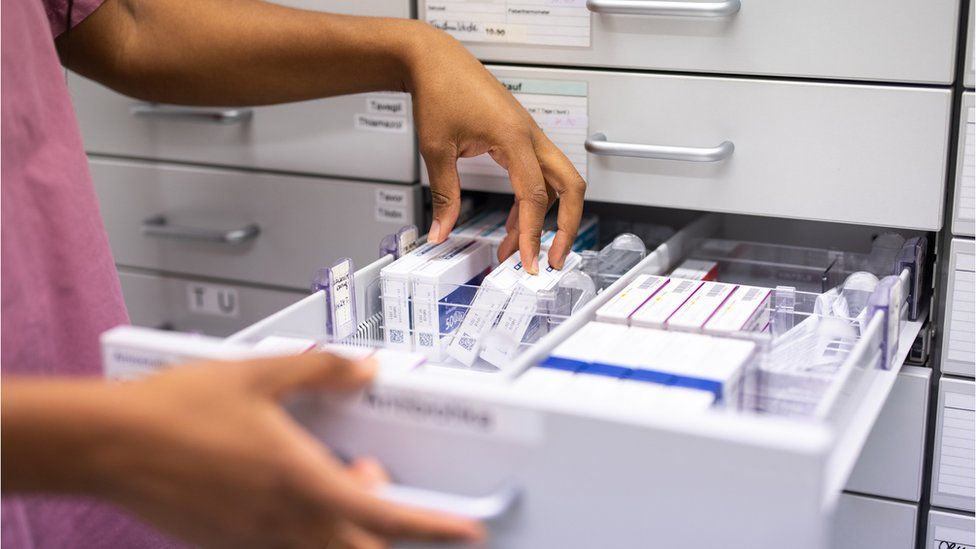ARTICLE AD BOX
 Image source, Getty/Luis Alvarez
Image source, Getty/Luis Alvarez
The Nuffield Trust has been examining the broad impacts of Brexit on the UK health system
By John Campbell
BBC News NI Economics & Business Editor
There are growing post-Brexit differences between which medicines are approved for use in Northern Ireland and the rest of the UK, research from a health think tank indicates.
The Nuffield Trust has been examining Brexit's affect on the health system.
More than 100 products have been approved for use in Great Britain but not Northern Ireland, it suggests.
Conversely since 2021, 52 products have been granted marketing authorisation for Northern Ireland but not in GB.
It does not necessarily mean that certain types of drugs are completely unavailable in Northern Ireland, rather it may be that a particular formulation produced by a particular manufacturer has not been licensed.
The Nuffield Trust said a recent example of a product licensed in Great Britain but not Northern Ireland is a generic version of the Parkinson's disease drug Ropinirole, produced by Sciecure Pharma.
Meanwhile, the Slovenian company Sandoz Farmacevtska Druzb has introduced multiple painkillers to the Northern Ireland market, but not elsewhere in the UK.
Stormont's Department of Health said its priority is to maintain equity of access to new medicines for the people of Northern Ireland with the rest of the UK.
A spokesperson added that it continues to work with the Medicines and Healthcare products Regulatory Agency (MHRA) to this end.
"This includes utilisation of the Northern Ireland MHRA Authorised Route (NIMAR), which has been designed to ensure that people in Northern Ireland can continue to access medicines should clinical need be unable to be met through authorised products or any other regulatory routes," the spokesperson added.
This means that some medicines that do not have a specific Northern Ireland authorisation can still be made available in Northern Ireland.
The post-Brexit deal known as the Protocol means Northern Ireland is still inside the EU's pharmaceutical regulatory system.
However, it gets most of its medicines from Great Britain, which is not.
Image source, Getty Images
Image caption,The post-Brexit deal known as the Protocol means Northern Ireland is still inside the EU's pharmaceutical regulatory system
The EU accepted it was a problem and in April 2022 changed its laws so that medicines entering Northern Ireland from Great Britain will not need additional labelling or testing, things which would have been required by the protocol in its original form.
Licensing is a complex area; in the EU there is a role for the European Medicines Agency (EMA) and national regulators.
The protocol means the EMA's role is effectively to approve innovative drugs for use in Northern Ireland while the MHRA approves things like generic medicines.
However, generics manufacturers effectively need two licences to supply the whole of the UK, one covering GB and one covering NI, which adds additional cost and complexity.
Stormont has raised concerns
The Nuffield Trust said it is difficult to provide a precise number for medicines introduced in Great Britain but not in Northern Ireland due to those continuing EMA approval powers in Northern Ireland.
However, it said that looking at all of the 597 products MHRA has approved for Great Britain since the start of 2021, only eight were also approved for Northern Ireland under the same name and company and it seemed that only a minority had been approved by the EMA.
It added: "While a case-by-case study would be needed to provide a precise number, this suggests that the number of products now available in Scotland, England and Wales but not Northern Ireland is likely well into triple figures."
Stormont's Department of Health said it was currently considering the report and has raised its concerns relating to divergence with the UK government.

 1 year ago
34
1 year ago
34








 English (US)
English (US)